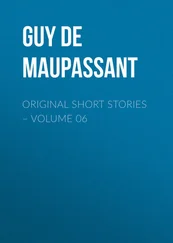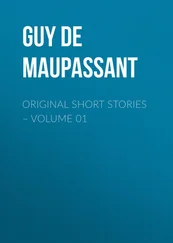It was one o'clock in the morning when the relations of the deceased were informed that they might accomplish their part of the work.
The door of the little house they occupied was open, and we perceived, lying on a stretcher in the small, dimly lighted vestibule the corpse covered with white silk. We could see him plainly as he lay stretched out on his back, his outline clearly defined beneath this white veil.
The East Indians, standing at his feet, remained motionless, while one of them performed the prescribed rites, murmuring unfamiliar words in a low, monotonous tone. He walked round and round the corpse; touching it occasionally, then, taking an urn suspended from three slender chains, he sprinkled it for some time with the sacred water of the Ganges, that East Indians must always carry with them wherever they go.
Then the stretcher was lifted by four of them who started off at a slow march. The moon had gone down, leaving the muddy, deserted streets in darkness, but the body on the stretcher appeared to be luminous, so dazzlingly white was the silk, and it was a weird sight to see, passing along through the night, the semi–luminous form of this corpse, borne by those men, the dusky skin of whose faces and hands could scarcely be distinguished from their clothing in the darkness.
Behind the corpse came three Indians, and then, a full head taller than themselves and wrapped in an ample traveling coat of a soft gray color, appeared the outline of an Englishman, a kind and superior man, a friend of theirs, who was their guide and counselor in their European travels.
Beneath the cold, misty sky of this little northern beach I felt as if I were taking part in a sort of symbolical drama. It seemed to me that they were carrying there, before me, the conquered genius of India, followed, as in a funeral procession, by the victorious genius of England robed in a gray ulster.
On the shingly beach the four bearers halted a few moments to take breath, and then proceeded on their way. They now walked quickly, bending beneath the weight of their burden. At length they reached the funeral pile. It was erected in an indentation, at the very foot of the cliff, which rose above it perpendicularly a hundred meters high, perfectly white but looking gray in the night.
The funeral pile was about three and a half feet high. The corpse was placed on it and then one of the Indians asked to have the pole star pointed out to him. This was done, and the dead Rajah was laid with his feet turned towards his native country. Then twelve bottles of kerosene were poured over him and he was covered completely with thin slabs of pine wood. For almost another hour the relations and servants kept piling up the funeral pyre which looked like one of those piles of wood that carpenters keep in their yards. Then on top of this was poured the contents of twenty bottles of oil, and on top of all they emptied a bag of fine shavings. A few steps further on, a flame was glimmering in a little bronze brazier, which had remained lighted since the arrival of the corpse.
The moment had arrived. The relations went to fetch the fire. As it was barely alight, some oil was poured on it, and suddenly a flame arose lighting up the great wall of rock from summit to base. An Indian who was leaning over the brazier rose upright, his two hands in the air, his elbows bent, and all at once we saw arising, all black on the immense white cliff, a colossal shadow, the shadow of Buddha in his hieratic posture. And the little pointed toque that the man wore on his head even looked like the head–dress of the god.
The effect was so striking and unexpected that I felt my heart beat as though some supernatural apparition had risen up before me.
That was just what it was—the ancient and sacred image, come from the heart of the East to the ends of Europe, and watching over its son whom they were going to cremate there.
It vanished. They brought fire. The shavings on top of the pyre were lighted and then the wood caught fire and a brilliant light illumined the cliff, the shingle and the foam of the waves as they broke on the beach.
It grew brighter from second to second, lighting up on the sea in the distance the dancing crest of the waves.
The breeze from the ocean blew in gusts, increasing the heat of the flame which flattened down, twisted, then shot up again, throwing out millions of sparks. They mounted with wild rapidity along the cliff and were lost in the sky, mingling with the stars, increasing their number. Some sea birds who had awakened uttered their plaintive cry, and, describing long curves, flew, with their white wings extended, through the gleam from the funeral pyre and then disappeared in the night.
Before long the pile of wood was nothing but a mass of flame, not red but yellow, a blinding yellow, a furnace lashed by the wind. And, suddenly, beneath a stronger gust, it tottered, partially crumbling as it leaned towards the sea, and the corpse came to view, full length, blackened on his couch of flame and burning with long blue flames:
The pile of wood having crumbled further on the right the corpse turned over as a man does in bed. They immediately covered him with fresh wood and the fire started up again more furiously than ever.
The East Indians, seated in a semi–circle on the shingle, looked out with sad, serious faces. And the rest of us, as it was very cold, had drawn nearer to the fire until the smoke and sparks came in our faces. There was no odor save that of burning pine and petroleum.
Hours passed; day began to break. Toward five o'clock in the morning nothing remained but a heap of ashes. The relations gathered them up, cast some of them to the winds, some in the sea, and kept some in a brass vase that they had brought from India. They then retired to their home to give utterance to lamentations.
These young princes and their servants, by the employment of the most inadequate appliances succeeded in carrying out the cremation of their relation in the most perfect manner, with singular skill and remarkable dignity. Everything was done according to ritual, according to the rigid ordinances of their religion. Their dead one rests in peace.
The following morning at daybreak there was an indescribable commotion in Etretat. Some insisted that they had burned a man alive, others that they were trying to hide a crime, some that the mayor would be put in jail, others that the Indian prince had succumbed to an attack of cholera.
The men were amazed, the women indignant. A crowd of people spent the day on the site of the funeral pile, looking for fragments of bone in the shingle that was still warm. They found enough bones to reconstruct ten skeletons, for the farmers on shore frequently throw their dead sheep into the sea. The finders carefully placed these various fragments in their pocketbooks. But not one of them possesses a true particle of the Indian prince.
That very night a deputy sent by the government came to hold an inquest. He, however, formed an estimate of this singular case like a man of intelligence and good sense. But what should he say in his report?
The East Indians declared that if they had been prevented in France from cremating their dead they would have taken him to a freer country where they could have carried out their customs.
Thus, I have seen a man cremated on a funeral pile, and it has given me a wish to disappear in the same manner.
In this way everything ends at once. Man expedites the slow work of nature, instead of delaying it by the hideous coffin in which one decomposes for months. The flesh is dead, the spirit has fled. Fire which purifies disperses in a few hours all that was a human being; it casts it to the winds, converting it into air and ashes, and not into ignominious corruption.
This is clean and hygienic. Putrefaction beneath the ground in a closed box where the body becomes like pap, a blackened, stinking pap, has about it something repugnant and disgusting. The sight of the coffin as it descends into this muddy hole wrings one's heart with anguish. But the funeral pyre which flames up beneath the sky has about it something grand, beautiful and solemn.
Читать дальше












